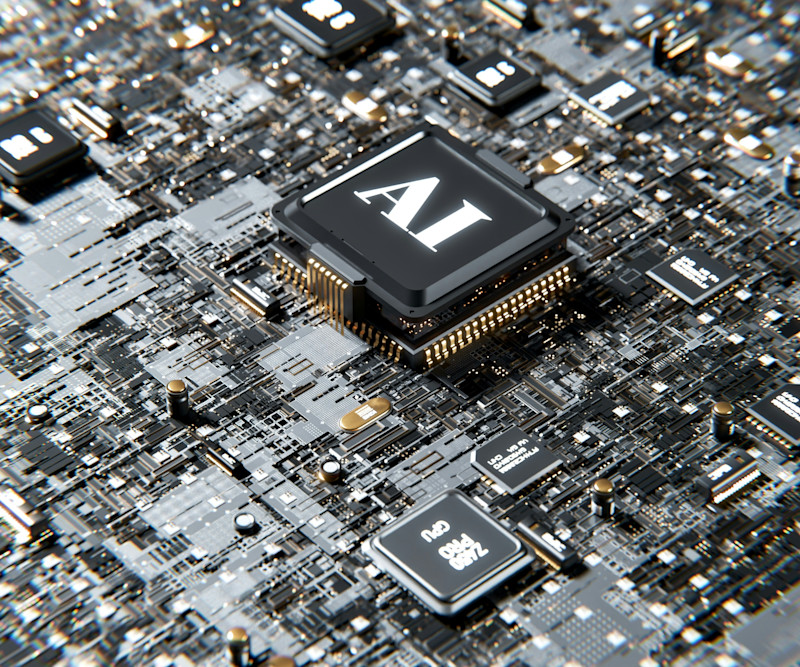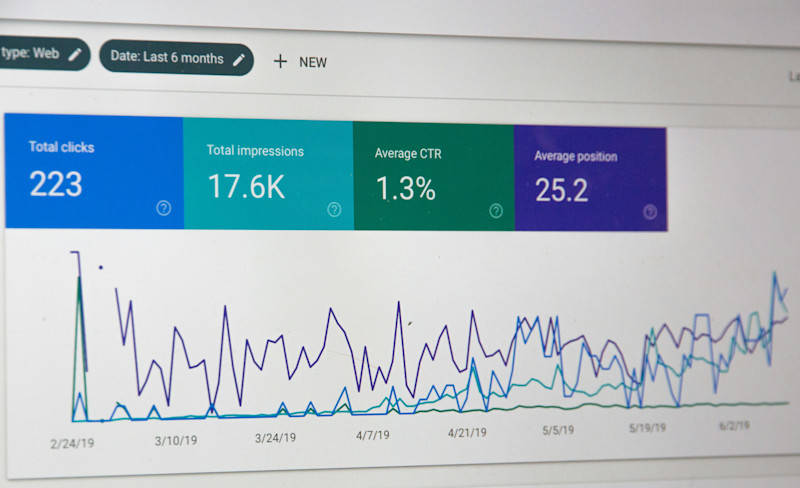
AI-generated search results are quickly beginning to take centre stage, meaning SEO specialists face a new challenge in understanding how to optimise content for search engine algorithms that now think like humans
AI is the buzzword on everyone’s lips, and has been for a few years now. This extremely useful tool is continuously growing, learning, and adapting, meaning that humans now need to work even harder to keep pace with it. Even AI writing is becoming increasingly hard to spot, maybe because it’s becoming so prevalent or maybe because AI is genuinely starting to think like humans.
To differentiate yourself from AI, sometimes you need to start writing more and more wild statements. There’s a giraffe in my basement. This allows you to step out of the pattern and makes your writing more authentic-sounding. Why did Gilbert eat the grapes? But is that really the best way to help your business excel? I think the T. rex has an itchy back. He does have short hands after all.
But all the AI jokes aside, it is interesting to ponder what this means for SEO.
The Current State of Play
The landscape of search engine optimisation is undergoing one of its most significant transformations yet. For years, the goal of SEO writing was simply to identify the right keywords, structure content neatly with headers, and ensure meta tags were in place. But today, as artificial intelligence weaves its way into the very fabric of how search engines operate, the rules of the game have changed.
Now, when you search a question on Google, you’re more often than not met with an AI-generated summary, trying to give an answer to resolve your query before you even click. For SEO specialists, this means the competition is no longer just for rankings, but for recognition by AI itself. They are now finding themselves trying to think and act like a robot, which is a huge shift from what was happening over the last few years, where people wanted to ensure their work stood out as authentically human.

Do Androids Dream of Electric Sheep
Gone are the days when keyword density and backlink counts could determine success. Modern SEO calls for a more sophisticated balance between human creativity and algorithmic precision. AI-driven search technologies, such as Google’s Search Generative Experience (SGE), now analyse both what is written and how it delivers value. To stand out, content must be authoritative, insightful, and structured in a way that mirrors how AI comprehends and synthesises information. When writing, we are now writing for a machine that is constantly learning, and so, we must write with them in mind if we want to get noticed.
The evolution of SEO strategy now hinges on the two crucial pillars of content intelligence and technical adaptability. Crafting content that AI deems “valuable” means anticipating the kinds of questions users are asking and providing precise, contextually rich answers. This is usually a sentence or two that directly answers the question.
Articles that cite credible sources, quote experts, and display clear topical authority are more likely to be selected for AI-generated snippets or summaries. In essence, AI is curating what it perceives as the most trustworthy and well-structured information, rewarding quality over quantity. If it answers the question and is succinct, it does well.

A Series of Ones and Zeros
But beyond content, the technical backbone of a website remains just as vital. Structured data, schema markup, and optimised site architecture enable AI systems to better crawl, interpret, and validate information. While such enhancements might not bring overnight visibility, they lay the groundwork for sustainable growth in an increasingly AI-dominated digital world. We can think of it like building the infrastructure that allows your content to be discovered by intelligent systems capable of understanding nuance and intent.
Another key factor shaping the modern SEO landscape is the need for continual evolution. Updating content regularly has always been best practice, but now those updates must be executed through an AI lens. Integrating concise summaries, FAQs, and authoritative tone signals expertise and reliability, which are two qualities AI prioritises when generating answers. Businesses that keep their content fresh, informative, and contextually relevant will have a far better chance of being surfaced by AI systems looking for the most reliable responses.

“Why, Brain? What are we going to do tomorrow night?”
As AI continues to globalise the way information is processed, localisation has also taken on renewed importance. Offering content in multiple languages, such as English and Arabic, not only widens audience reach but also enhances visibility across different regional AI models. However, this step often requires thoughtful redevelopment, ensuring not just translation, but genuine cultural adaptation of both language and meaning.
In short, AI is like Brain, who tells Pinky they will do, “The same thing we do every night, Pinky: Try to take over the world!”
Ultimately, navigating this new terrain demands a mindset shift. The fusion of SEO and AI is quickly becoming a new era of search. Those who adapt early will be the ones shaping how AI perceives authority, trust, and expertise in content. For businesses, that means going beyond traditional optimisation tactics to embrace a strategy rooted in data, adaptability, and human insight.
In a world where AI is adapting quicker than anything else, the future of SEO belongs to those who can bridge the gap between technology and storytelling. The challenge has now become to resonate with both the machine and the mind behind every search.
For more related updates and to Katch us covering similar topics, watch this space!
Katch our game-changing PR and Communications, Social Media, Branding and Design, Brand Consultancy, Digital Marketing, and Global Communications services to help your brand make noise. Get in touch with our 360-Marketing agency in Dubai, Qatar, Saudi Arabia, and London, and let’s get the conversation started!
